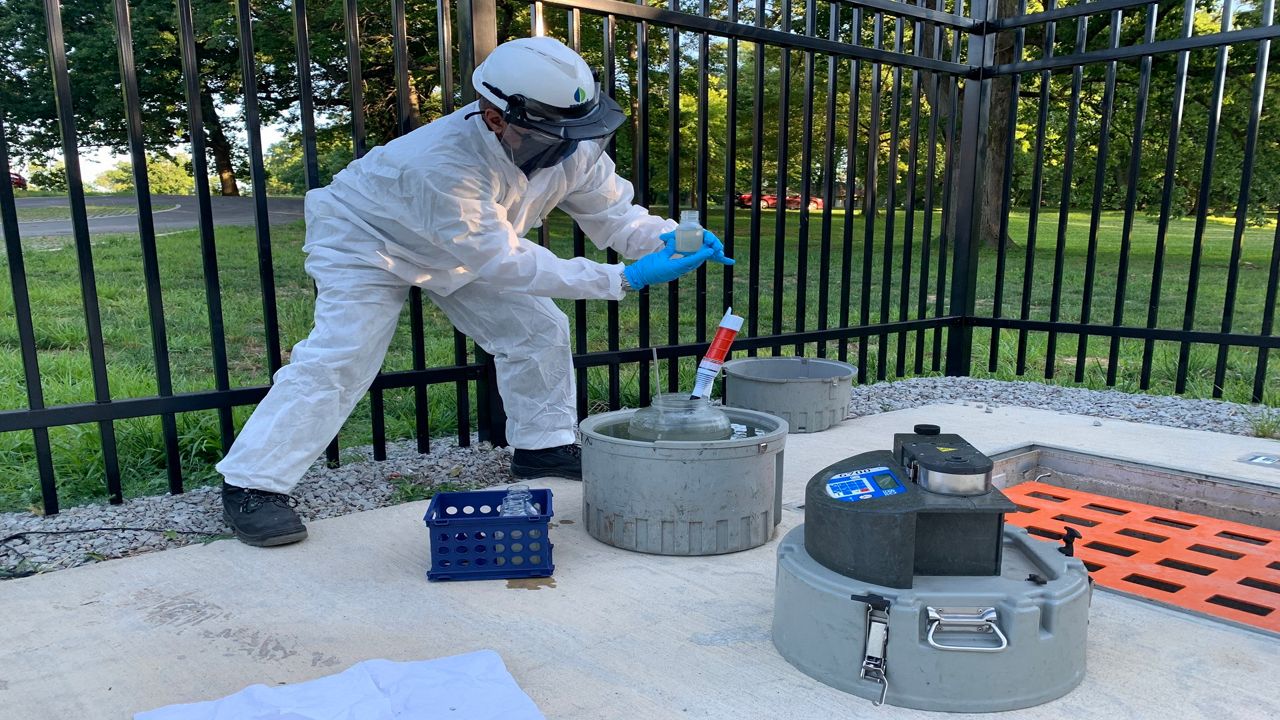LOUISVILLE, Ky. — University of Louisville researchers and the Louisville/Jefferson County Metropolitan Sewer District (MSD) are teaming up to find out if areas of coronavirus infection can be tracked through wastewater. This endeavor is part of community testing for Phase II of the Co-Immunity Project, an effort to track and curb coronavirus within Jefferson County.
MSD will provide samples from eight sites in its network of pipes and five treatment facilities which will be sent to UofL each week and research collaborators at Arizona State University (ASU) for virus analysis.
To count copies of the coronavirus's RNA present in wastewater and sewage sludge samples, ASU's lab will use RT-PCR tests, a technique for detecting the virus's genetic material. RNA sequences, researchers believe, are an indicator of infection levels in a community.
UofL recently received a $1 million gift from the Owsley Brown II Family Foundation to support this work and other work done by the Co-Immunity Project.
“Traditionally, science has had difficulty addressing the interdependent nature of people and their environment or factoring in the many forms of human health, including environmental health and the water we all depend on. The Envirome Institute was founded to fill that void,” Christina Lee Brown said. “The challenges of this pandemic have made the need to learn how to make decisions through all forms of health all too clear, and I'm so proud the team here is at the national forefront of the response. The Co-Immunity Project, especially now with this singular partnership with MSD, puts Louisville and Kentucky at the cutting edge nationally in terms of virus monitoring.”
Phase II of the Co-Immunity Project will also include testing 2,400 people for coronavirus infection and antibodies. By testing both people and wastewater across the city, researchers hope to develop a "virus radar" that can tell where the virus is in the community. Information provided by the radar could tell researchers where hot spots are and act as an early warning sign of future outbreaks.
“MSD has a team of skilled professionals who are already taking samples as part of our operations and regulatory requirements. It was a natural extension to offer help to the researchers at the University of Louisville for this important COVID-19 research,” said MSD Executive Director Tony Parrott.
MSD wastewater operators, lab staff and those gathering samples for this research have personal protective equipment and follow best practice guidelines from the Occupational Safety and Health Administration and the Centers for Disease Control and Prevention. UofL has also offered additional MSD employee testing as part of this research collaboration.



